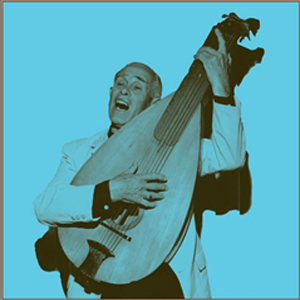…it’s an interpretive and intensely personal approach and you never feel as if anything has been surrendered to “authenticity” or convention. Frankly, at times this record sounds bananas. But always brilliant, and especially listening now in our regulated times.
…it’s an interpretive and intensely personal approach and you never feel as if anything has been surrendered to “authenticity” or convention. Frankly, at times this record sounds bananas. But always brilliant, and especially listening now in our regulated times.

LM Dupli-cation http://www.konkurrent.nl
What a strange album this is and what a compelling one, too. I knew nothing of John Jacob Niles before I heard this record and to be honest I don’t really want to fill this review with “explanatory facts”. The internet is a wonderful thing and as those technical doctors say, you are only a click away. In any case, you can supplement your personal “Niles files” by reading the copious sleeve notes that accompany this release, compiled by Ron Pen, Professor of Music at the University of Kentucky. And after disseminating this message I feel I must now bow to Prof. Penn and concern myself only with what I’ve heard on The Boone-Tolliver Recordings: which is one hell of a trip.
The Boone-Tolliver Recordings was the result of four continuous days recording at Niles’ house in February 1952, stamping many old British folk songs with his vision and through his compositions and adaptations. The power of that vision -and of its presentation is extraordinary. At times it’s difficult to hear a line between the performance and the adaptation; at its apogee the various elements merge into a thrilling whole, and as such listening to this album is a really moving experience, rather than a sober appreciation of a set of songs.
Niles’ extraordinary voice dominates this record, whether this is an extension of his personality or a pure performance element, it’s hard to quantify now – Niles died over 30 years ago – but regardless of the strong songs it’s the central theme for the listener. Everything gets the treatment, from the ghostly opener I’m Goin’ Away through Mattie Groves to Oh Waly, Waly. The Lass from the Low Country and G’Way from My Window are extraordinary displays of acting out emotion through a song: Niles’ high pitched voice jumps through every emotional hoop imaginable, the sense of drama, hardship and loss in the stories is tangible.
At certain moments (The Cuckoo or Little Mattie Groves) he really sounds a tad demented; as if the interpretive effort has sent him slightly round the bend – the rasps and wheezes and vocal arches in his voice sound almost painful. Not forced though, for this is a wholly natural performance, rather, he’s going flat out. At times Niles shows as much regard for the octave range as a getaway car for red lights. There’s also feeling that he could be channelling the past, especially on tracks like Mary Hamilton or Oh Waly, Waly; it’s an interpretive and intensely personal approach and you never feel as if anything has been surrendered to “authenticity” or convention. Frankly, at times this record sounds bananas. But always brilliant, and especially listening now in our regulated times.
Go on, I dare you to give this a listen or two.
